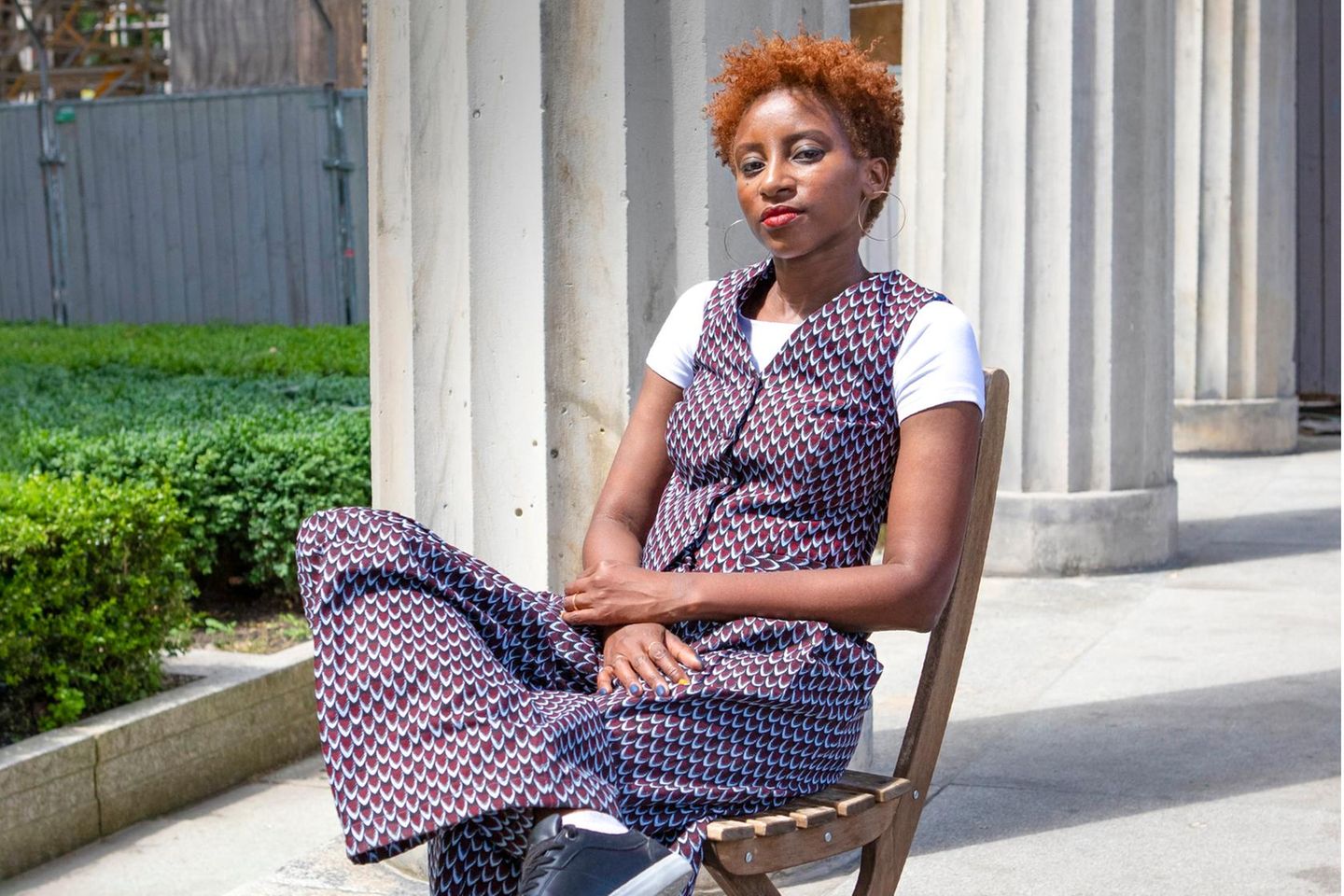Gambia
Nana-Jo Ndow fights against forgetting
© Natalia Bronny
What she wants: to heal her country after the dictatorship
What it takes: enlightenment
Why she does this: because her father was just one victim of many.
Nana-Jo Ndow’s fight against forgetting began ten years ago. At that time, her father, an influential Gambian businessman and critic of the Gambian regime, disappeared during a business trip in the neighboring country Senegal without a trace. “He had always been bad at responding to emails,” Ndow remembers. That’s why she had repeatedly warned him to contact him more often; she was worried if she didn’t hear from him. But back then, ten years ago, he suddenly fell completely silent. Ndow knew then that there was real cause for concern.
Nana-Jo Ndow, now 38, was still a child when dictator Yahya Jammeh came to power in Gambia in a military coup in 1994. Her father then supported various dissidents who called for an end to the dictatorship. He went into exile at the end of the 1990s and his children grew up in London and the Ivory Coast. Jammeh’s anger still hit him. In 2013 he was kidnapped and murdered by militias on the orders of the dictator in Senegal.
He is not the only one: During the 20-year dictatorship in Gambia, hundreds of opposition members were victims of enforced disappearances, torture and murder. The turning point only came in 2017: When Gambia’s neighboring states threatened military intervention, Jammeh acknowledged his defeat in the presidential elections. Political prisoners were released under the new democratically elected government, Media were able to report independently. A truth commission worked on some of the crimes of the Jammeh era until 2021.
An opportunity for enlightenment and justice
A new phase also began for Nana-Jo Ndow: the end of the dictatorship was an opportunity for her to demand clarification and justice for the death of her father and other opponents of the regime. “I realized that we wouldn’t achieve much as a family alone, that we had to organize ourselves.” In 2018, she founded the African Network Against Extrajudicial Executions and Enforced Disappearances (ANEKED).. She networked with other victims – mostly women like her and her mother, whose sons, husbands and fathers had disappeared – and exchanged experiences during the search. But her focus was always on the bigger picture: How can a society become whole again after 22 years of dictatorship?
Ndow believes that the work of the state truth commission has had a big impact here: victims and perpetrators have been heard. There were recommendations as to who should be tried. But she wants more. “We are dealing with an entire generation that knows nothing but violence and impunity. If we don’t do this right now, the violence will return at some point.”
ANEKED therefore organizes workshops on remembrance work in Gambian schools, fights for better legislation against enforced disappearances, brings survivors and politicians together at conferences and brings the cases of disappeared people to court. When Ndow talks about her work during an interview in Berlin, where she lives with her German husband and daughter, it sometimes sounds like this: as if she and her twelve colleagues had to single-handedly build the democratic future of Gambia. The network is already working in Ghana and also wants to become active in other African countries that once suffered from dictatorships.
Towards the future
Nana-Jo Ndow will soon be moving to New York with her family. As in Berlin, the gender equality researcher will also work there as a speaker on women in peace and conflict research – and continue their voluntary work for ANEKED. Money is always tight because she has to apply for new money from foundations and organizations such as the United Nations for each project.
In Gambia, ANEKED has founded a museum to document the stories of the victims of Jammeh’s dictatorship. Also Ndow’s father’s. After his disappearance, Ndow never saw him again. But unlike other relatives of the disappeared, she now at least knows that he is actually dead. And she was able to fight for compensation before the Court of Justice of the Economic Community of West African States: the Gambian state must now pay her around $100,000 for the violation of her fundamental rights.
